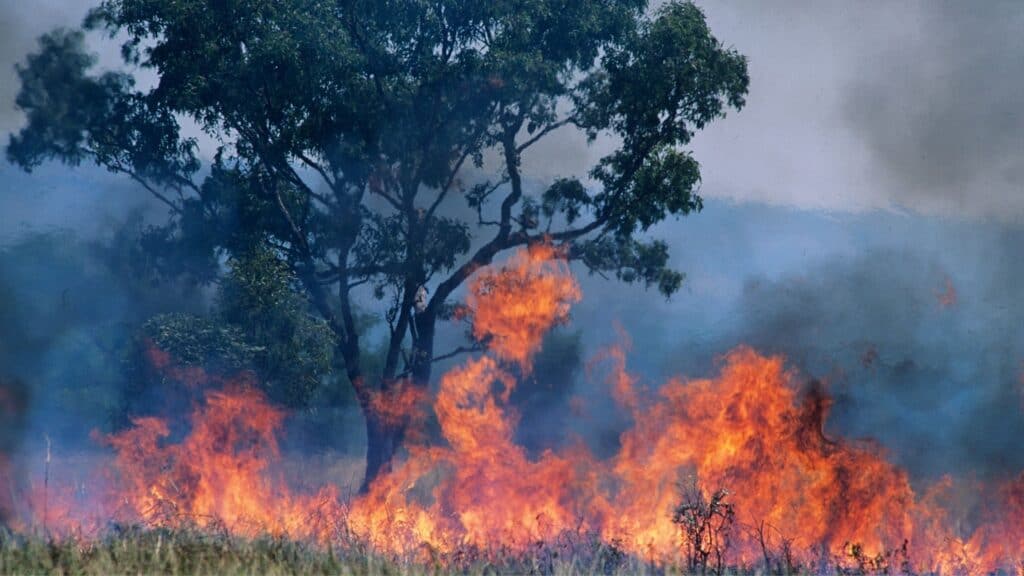Is Betting On Natural Disasters, Like The LA Wildfires, Ethical?

Table of Contents
The Argument Against Disaster Betting: Exploiting Human Suffering
Betting on natural disasters, such as hurricanes, earthquakes, or wildfires, raises significant ethical concerns. It's a practice that many find deeply unsettling, bordering on the exploitative.
Profiteering from Tragedy
The most immediate objection to disaster betting is the perception of profiting from human suffering. Imagine placing a bet on the intensity of a hurricane just as families are evacuating their homes, or wagering on the extent of wildfire damage while communities are grappling with loss. This feels profoundly insensitive and disrespectful to victims.
- The potential for psychological harm is substantial. Already struggling with trauma, loss, and displacement, victims may find the knowledge that others are profiting from their suffering deeply exacerbating.
- Consider the 2017 hurricanes in the Caribbean. The sheer scale of devastation created a market for those willing to bet on the intensity and impact of these catastrophic events. This raises serious questions about the morality of such markets.
- The emotional toll on communities is immense. Betters, insulated from the direct impact, gain financially while the affected communities face years of rebuilding and recovery.
The Lack of Informed Consent
A fundamental ethical principle is informed consent. Those suffering the devastation of a natural disaster have certainly not consented to their suffering becoming a commodity for gambling. Bettors are, in essence, profiting from events over which victims have absolutely no control.
- There's a significant power imbalance. Victims are vulnerable, facing immense hardship, while bettors operate from a position of relative safety and detachment.
- Manipulative marketing could target vulnerable populations, preying on their anxieties and anxieties surrounding disaster prediction and relief efforts. This exacerbates the ethical concerns.
The Issue of Prediction Accuracy & Data Exploitation
The accuracy of disaster predictions is crucial. Using sensitive data, such as weather patterns, geological information, or even emergency response data, to predict and profit from disasters raises serious ethical questions.
- Inaccurate predictions can lead to further distress. False alarms or underestimation of the disaster's impact can exacerbate the suffering of affected communities.
- The increasing use of AI and machine learning in predictive modeling for betting raises further concerns. The algorithms' reliance on data raises questions about privacy, transparency, and potential bias in prediction models.
The Argument For Disaster Betting: Predictive Modeling and Risk Assessment
While the ethical objections are substantial, proponents argue that disaster betting can serve a positive purpose.
A Tool for Improved Risk Management
Proponents suggest that accurate prediction markets could improve disaster preparedness and mitigation strategies. The aggregated wisdom of the crowd, reflected in betting odds, may offer insights not readily available through traditional forecasting methods.
- Insurance companies and governments could use betting markets as a tool for risk assessment, informing pricing and resource allocation.
- Data from betting markets might reveal unforeseen vulnerabilities or highlight areas requiring improved infrastructure. For example, consistently high odds on flooding in a specific region could signal a need for improved drainage systems.
Financial Incentives for Disaster Preparedness
The potential for financial losses from inaccurate predictions could motivate investment in improved infrastructure and early warning systems. In essence, disaster betting creates a financial incentive for accurate forecasting and proactive disaster management.
- The competitive pressure to provide accurate predictions could drive innovation in disaster prediction technology.
- Companies and governments might invest more in research and development, leading to better forecasting and mitigation techniques.
Distinguishing Between Responsible and Exploitative Betting
The key to navigating this ethical minefield lies in distinguishing between responsible and exploitative disaster betting. This requires strict regulation and ethical guidelines.
- Transparency in data sources and prediction methodologies is essential. Bettors need to understand the limitations and potential biases in the predictions.
- Responsible marketing avoids preying on the anxieties of vulnerable populations. Focus should instead be on the potential benefits of improving disaster preparedness and risk assessment.
- A portion of profits should be channeled towards disaster relief efforts. This would demonstrate social responsibility and mitigate the perception of profiting solely from tragedy.
Conclusion: Navigating the Ethical Minefield of Disaster Betting
Betting on natural disasters presents a complex ethical dilemma. While the potential for exploiting human suffering is undeniable, the argument that accurate prediction markets could improve disaster preparedness and risk assessment holds some merit. The crucial point is responsible and ethical development and use of these markets. We need robust regulations, transparent data handling, and a commitment to using profits for disaster relief to navigate this sensitive issue. Engage in informed discussions and demand responsible gambling practices and proactive disaster preparedness. The future of betting on natural disasters depends on our ability to balance the potential benefits with the inherent ethical concerns. We must approach this with caution and prioritize ethical considerations above all else.

Featured Posts
-
 Chelsea Handler Reveals Why She Avoided A Date With Andrew Cuomo
Apr 26, 2025
Chelsea Handler Reveals Why She Avoided A Date With Andrew Cuomo
Apr 26, 2025 -
 A Us Military Installation The Focal Point Of Us China Strategic Competition
Apr 26, 2025
A Us Military Installation The Focal Point Of Us China Strategic Competition
Apr 26, 2025 -
 Federal Agency Survey Targets Jewish Employees At Columbia And Barnard
Apr 26, 2025
Federal Agency Survey Targets Jewish Employees At Columbia And Barnard
Apr 26, 2025 -
 Trump Envoy Witkoffs Moscow Arrival Interfax Report Details
Apr 26, 2025
Trump Envoy Witkoffs Moscow Arrival Interfax Report Details
Apr 26, 2025 -
 The Role Of Human Creativity In The Ai Era A Microsoft Perspective
Apr 26, 2025
The Role Of Human Creativity In The Ai Era A Microsoft Perspective
Apr 26, 2025
